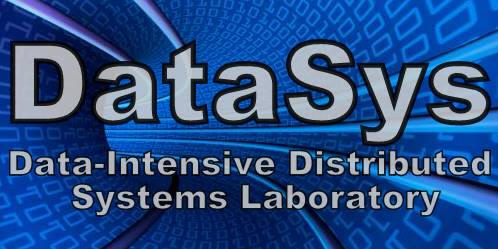CFP (TXT) | News | Topics | Dates | Submission | Organization | Program | Sponsors
5th Workshop on Many-Task Computing on Grids and Supercomputers (MTAGS) 2012
Co-located with Supercomputing/SC 2012Salt Lake City -- November 12th, 2012
Keynote Presentation
- Location: 155-C
- Date: November 12th, 2012
- Time: 9:10AM
Dr. Laxmikant (Sanjay) Kale
Professor
University of Illinois at Urbana Champaign
Talk title: Adaptive Runtime Systems meet needs of many task computing (Slides)
Abstract: We have been developing adaptive runtime techniques, and embodying them in a parallel programming system called Charm++ for many years now. In this talk I will describe how these techniques, and Charm++ in particular, can be useful for many-task computing. The basic abstractions in Charm++ is that of collections of C++ objects, organized in multiple indexed collections; these objects support asynchronous remote method invocations. More importantly, the objects are migratable across processors under the control of an introspective and adaptive runtime system. These capabilities can support several features of importance to the MTAGS community. For example, the number of processors used by a single Charm++ job can be changed during runtime. This "shrink-expand" capability, which is based on object migration, can be leveraged to manage multiple tasks in a flexible manner. Charm++ supports the ability to inject messages into an ongoing parallel computation from the outside via a client-server interface. A Python interface makes it easy to create workflow and clien-server applications. With a friendly job-scheduler, Charm++ also supports fault tolerance. Resources among multiple tasks can be flexibly shared. One of the features of the grid environment is latencies across geographically separated clusters. We have demonstrated that even tightly coupled applications can be run efficiently with Charm++'s message driven infrastructure. Ensemble computations with loose coordination are now explicitly supported by a new Charm++ infrastructure, which supports computations such as replica exchange methods. The talk will introduce and discuss the above features with examples for multiple science and engineering disciplines.
Bio: Professor Laxmikant Kale is the director of the Parallel Programming Laboratory and a Professor of Computer Science at the University of Illinois at Urbana-Champaign. Prof. Kale has been working on various aspects of parallel computing, with a focus on enhancing performance and productivity via adaptive runtime systems, and with the belief that only interdisciplinary research involving multiple CSE and other applications can bring back well-honed abstractions into Computer Science that will have a long-term impact on the state-of-art. His collaborations include the widely used Gordon-Bell award winning (SC'2002) biomolecular simulation program NAMD, and other collaborations on computational cosmology, quantum chemistry, rocket simulation, space-time meshes, and other unstructured mesh applications. He takes pride in his group's success in distributing and supporting software embodying his research ideas, including Charm++, Adaptive MPI and the BigSim framework. He and his team recently won the HPC Challenge award at Supercomputing 2011, for their entry based on Charm++. L. V. Kale received the B.Tech degree in Electronics Engineering from Benares Hindu University, Varanasi, India in 1977, and a M.E. degree in Computer Science from Indian Institute of Science in Bangalore, India, in 1979. He received a Ph.D. in computer science in from State University of New York, Stony Brook, in 1985. He worked as a scientist at the Tata Institute of Fundamental Research from 1979 to 1981. He joined the faculty of the University of Illinois at Urbana-Champaign as an Assistant Professor in 1985, where he is currently employed as a Professor. Prof. Kale is a fellow of the IEEE.
 Data-Intensive Distributed Systems Laboratory
Data-Intensive Distributed Systems Laboratory